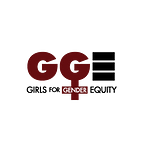NABG Newsletter Issue 11: COVID-19 Doesn’t Discriminate, but America does
You are reading an A National Agenda for Black Girls weekly newsletter. A National Agenda for Black Girls a Girls for Gender Equity initiative focused on centering Black girls in our national policies. Want to receive more NABG insights and updates? Sign up for the newsletter here.
As COVID-19 continues to spread unhindered throughout our communities, the realities of our failed health and social infrastructures are becoming increasingly evident. Decades of structural racism, housing discrimination, and institutional neglect have left Black, Latinx, and low-income communities extremely vulnerable to this disease and unable to access high-quality care.
COVID-19 Impact
The impact of COVID-19 is not universal, it is harming the most systematically marginalized folks in this country. Environmental racism, red lining, and segregationist economic policies have resulted in communities of color being at high risk for chronic diseases such as asthma, diabetes, and hypertension, all of which make them more susceptible to this virus. In Chicago, the city’s population is 23% Black, and yet Black folks constitute 68–70% of COVID-19 deaths, and in Milwaukee County, 80% of the deaths are Black people; many other cities mirror this terrifying statistic. This is not an accident. Black people’s COVID-19 mortality rates are a result of decades — if not centuries — of system failures and a lack of investment in the health and well-being of Black communities.
It is also a reflection of racist practices in healthcare systems. Healthcare facilities are more likely to be closed in communities of color, and Black people are twice as likely to lack health insurance than their white counterparts. Throughout history it is evident that Black people’s health is the first to be sacrificed, and this pattern is repeating. For example, Lupus, which disproportionately impacts Black and Latinx women, has two main medications used to mitigate symptoms and save lives, but medicine for people living with Lupus is being cut off so that it can be tested as a COVID-19 treatment. To deny women of color, especially Black women, their Lupus medication in order to find a cure for a disease that is impacting this community the hardest is unethical and unacceptable. Furthermore, in a time where people are being told they must work from home, only 20% of Black folks are able to protect themselves in this way, as they make up a significant portion of the essential workforce. This means that Black and Latinx people are more likely to be exposed to the virus and least likely to receive the necessary care to survive.
The initial response to COVID-19 was racist and classist, as testing was prioritized for those who had recently traveled, meaning those with a lower socioeconomic background were least likely to be tested. Compounding this, governments (globally) did not prioritize those who interacted with travelers, such as housekeepers, car share drivers, and taxi drivers, reinforcing the racist and classist impact of COVID-19.
There is a massive information gap about COVID-19, which negatively impacts low-income Black and Latinx Americans; 18% of American households earning less than $30,000 annually do not have access to Internet or WiFi. Misinformation in itself is deadly, especially in populations experiencing homelessness or people who use drugs since they may experience co-occurring health complications but are unsure when they should access medical care. The Harm Reduction Coalition published resources to support people who use drugs, or experience structural violence and to provide necessary, factual information.
LGBTQ folks of color are being disproportionately hurt by COVID-19. Inequities in healthcare are also common for LGBTQ populations since many providers do not offer affirming and knowledgeable services to trans and gender-nonconforming people, which can be exacerbated by being Black or Latinx. Roughly 5 million LGBTQ people work in industries impacted by COVID-19. Those who worked as bartenders, waitstaff, and performed in drag shows as their main source of income have subsequently been laid off, impacting their access to health insurance. In fact, 17% of LGBTQ adults do not have health insurance. Since 21% of LGBTQ people have asthma compared to 14% of non-LGBTQ people, the risk of contracting COVID-19 and experiencing complications are higher. The need for mental health and psychosocial support is great as many youth have been forced to move out of residence halls or are isolated in unsupportive and violent houses, which is incredibly harmful and (re)traumatizing.
What can be done?
COVID-19 shows what advocates and community leaders have been warning would happen for years: that systemic failures to adequately support our most marginalized communities will lead to devastating outcomes. While this pandemic has left us feeling isolated, it has also proven that once again our communities are powerful, resilient and responsive. Mutual aid networks are invaluable, creating safety nets where the government has failed to. Here are some Mutual Aid Funds to consider, if you are able, to support some of the hardest hit communities.
- Mutual Aid for People Impacted by Incarceration
- COVID-19 Emergency Fund for LGBTQIA+ Immigrants
- NYC Black Folk Mutual Aid Fund
Finally, a little joy.
This is a hard, dark time but do not forget to forage for bits of light in each day. Enjoy this radio episode on how to find joy by adrienne maree brown, and know you are not alone.
P.S. Know someone who is also invested in the future of Black girls? Forward this article to them. If you’d like to invest in Black girls, donate here, and sign up for our newsletter by clicking here.
